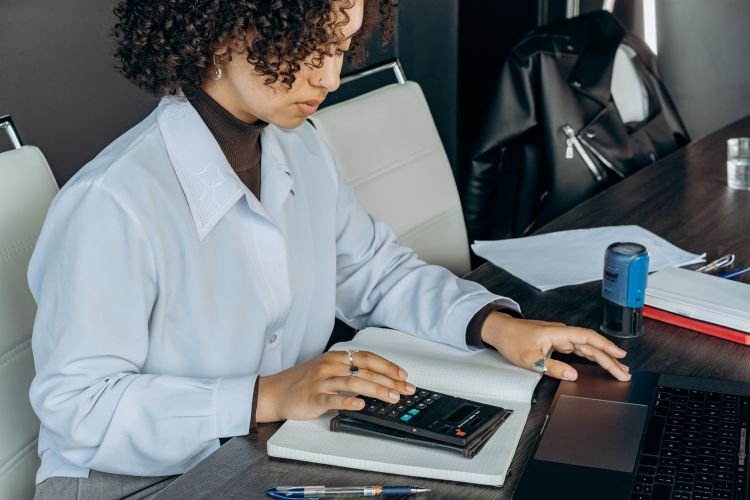 The landlord is the person who owns a property and rents it out. If you are running a business, many things need to be taken care of: keeping records, filing taxes, and any other paperwork that comes up. There are many important reasons why landlords should keep accurate and up-to-date financial records. First and foremost, good financial record-keeping is essential for providing documentation during an audit. Additionally, accurate financial records can help landlords keep track of expenses and income, budget for future repairs and improvements, and make well-informed decisions about their rental properties.
The landlord is the person who owns a property and rents it out. If you are running a business, many things need to be taken care of: keeping records, filing taxes, and any other paperwork that comes up. There are many important reasons why landlords should keep accurate and up-to-date financial records. First and foremost, good financial record-keeping is essential for providing documentation during an audit. Additionally, accurate financial records can help landlords keep track of expenses and income, budget for future repairs and improvements, and make well-informed decisions about their rental properties.
Introduction to financial record keeping
Financial record keeping is a process that helps you maintain accurate and up-to-date records of your finances. It is important to record information about your property, the tenants, the rent payments, expenses, and other costs to maintain accurate financial records. It will help you file accurate tax returns, avoid any legal disputes, and provide evidence in case of an audit.
Why is it important?
There are several reasons for landlords to maintain accurate, up-to-date financial records. Keeping records of your rental income and expenses makes it easy to see which months were profitable and which weren’t. It can help you plan for the future with greater accuracy and efficiency.
Maintaining financial records is also important to comply with the rules and regulations of leasing your property. You can get lease accounting support services to ensure you comply with the regulations and standards to avoid legal trouble. Compliance issues like safety checks and paperwork can be hard for landlords to manage, but with appropriate software and the right guidance, they can be managed easily.
Record keeping is essential when running a business, even if it’s a small one, such as leasing properties. Keep a record of all income and expenditures. This can be done using an accounting system or spreadsheet software. You could also include information about other costs, such as surveys, before carrying out any work on your property. It will help you manage your resources more efficiently and plan more strategically.
Good financial management requires keeping tabs on everything from cash flow to debt levels so that trends can be spotted early before major problems arise– especially since these issues may affect not only landlords but everyone around them too!
What do you need to keep records of?
There are several types of records that you need to keep. The most common record-keeping tasks include income, expenses, and taxes. This includes all money received from rental property (rent) and any operating expenses (utilities and maintenance). You also need to record these amounts in your rent book so that you can track them later when calculating income tax deductions or claiming expenses on your personal tax return.
Another thing to record is depreciation. If you bought new furniture or appliances for your rental property, they would depreciate over time at a rate determined by how long they’ll be used by tenants before being replaced or refurbished.
Tenant files maintain the records of your tenants. It is important to record all information about your tenant in case of a dispute. These records include tenant details, the lease agreement, security deposits, pet policy agreements, and maintenance requests.
How can you keep your finances in order?
The first step to managing your finances is establishing a system that works for you. You can use a spreadsheet, an accounting software program, or even an accountant to help organize and keep track of your transactions. If you’re on a budget, it’s helpful to know the average monthly cost for each service or product you receive. If this sounds like too much work, consider hiring someone else who will take care of all the bookkeeping for you throughout the year so that there isn’t any stress involved in keeping tabs on where the money goes each month. It’s also important not just when starting out but also during normal operations: don’t forget about paying yourself first!
Always know just how much tax you owe.
You need to know how much tax you owe. If you don’t, it will cost you. Tax can be due at the end of each financial year or on a quarterly basis, depending on your circumstances. If any payments are delayed, the authorities will apply interest charges per month from when payment is due until paid in full – so make sure they’re always paid on time to avoid legal trouble.
Use an accountant.
You might be perfectly capable of maintaining financial records even if you aren’t an accountant. However, the process might take longer and require more attention than if you had an accountant to do the job. A good accountant will be able to help better and maintain accurate records. They can accelerate processes like setting up bank accounts and paying bills online, saving you time and effort.
Conclusion
As a landlord, it is important to keep your finances in order. This will help with future tax and legal requirements and ensure that your tenants are happy with the service they receive from you. Make sure to use spreadsheets or software to record finances. They can make organizing and managing records easier and will save you from drowning in endless paperwork and compliance requirements.




